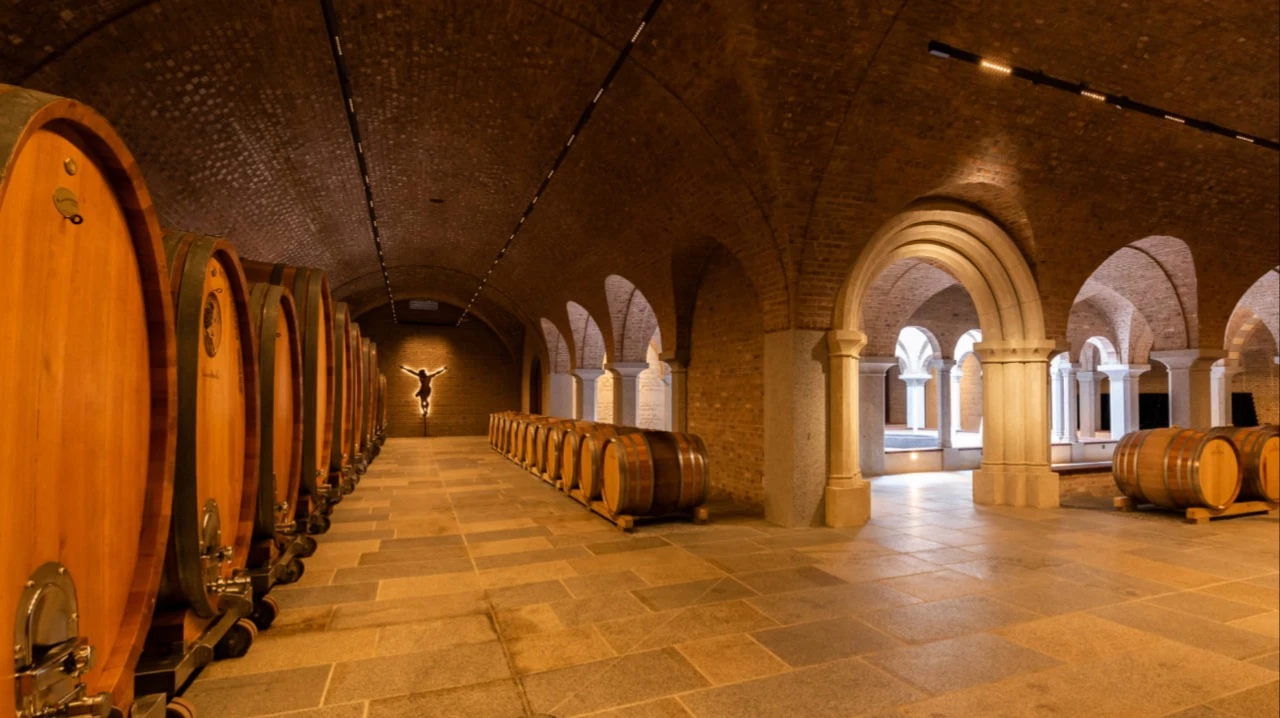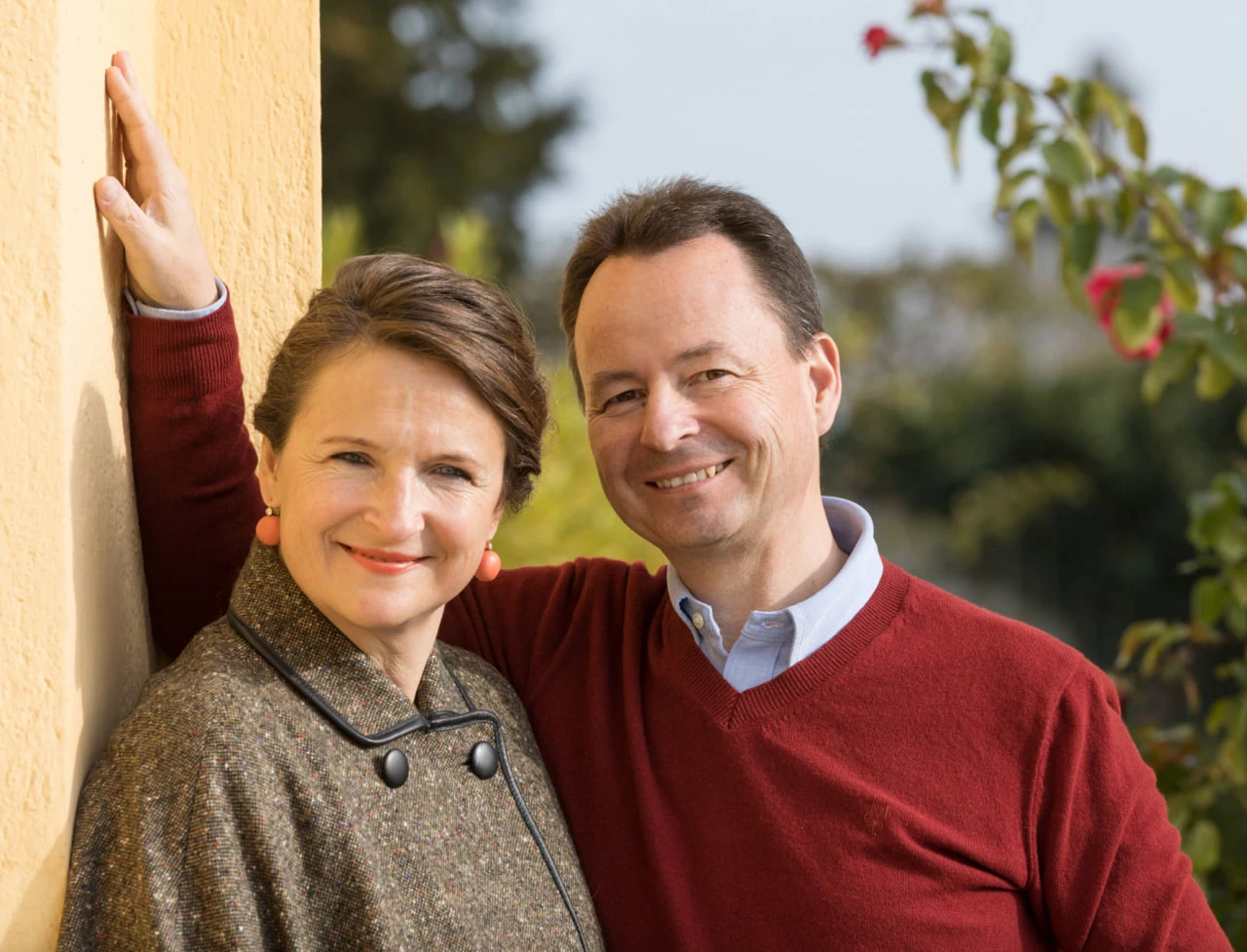Why Schloss Gobelsburg creates wine according to the canons of two hundred years ago

I met Eva Mosbrugger by chance at a wine salon. My eye fell on a booklet lying on a table a couple of steps away from me. It had a picture of a beautiful historical castle with the inscription "Schloss Gobelsburg" on it, and a laconic wine label and many awards shouted: "Taste me!"
I asked them to give me their best wine and tell me about the winery. "Try our Ried Lamm grüner," advised the smiling hostess of the stand - in Russian and with practically no accent. It turned out that Eva has been learning Russian for several years and enjoys practicing it every chance she gets. "I just really like Russian culture and the Russian language, that's why I'm learning it," she said;
After the first sip of their wine, there was a turning point in my attitude towards the "grüner veltliner" variety. Structural, mineral-spicy, with notes of yellow plums and even a slight anise accent - you could literally drown in this flavor. After the first sip, I wanted to meet the winemaker who could transform this varietal so much;
It turned out to be Eva's husband, Michael Mosbrugger, Managing Director of Schloss Gobelsburg. To meet him, I went to visit them in the charming little town of Langenlois, an hour's drive from Vienna, in the heart of the Camptal wine region. I couldn't have imagined a better meeting: a two-hour tour of the centuries-old cellars was followed by the interview itself, where Michael talked about his personal journey in the profession, the importance of mutual support and why winemaking is a real philosophy;
His family owned a hotel in one of Austria's most prestigious ski resorts, and so wine has always been an important part of his family. He took over the Schloss Gobelsburg winery in 1996 through a fortuitous coincidence - the monks of the Cistercian Abbey of Zwetl, who own the chateau, wanted a change in management and offered Michael this unique opportunity. He calls it "luck."

Since then, Michael has treated Schloss Gobelsburg as a legacy and emphasizes that he always has the monastery's best interests in mind when making strategic decisions. "Monks think in centuries, not generations," he says.
Philosophy of non-interference
The conversation with Michael was a deep dive into the history of wine, terroir and the evolution of winemaking philosophy;
I was particularly struck by their Tradition line of wines. In creating them, Michael consciously returns to production methods that were used 100-200 years ago. They use old large oak barrels, natural fermentation without modern temperature control technology, long contact with yeast lees and minimal intervention. The flavor of Tradition is very far from the standard "sterile" freshness. It is a multi-layered, deep wine with nuances of ripe fruit, spice and subtle and delicate yeast nuances. There is no screaming aromatics in the wine, on the contrary, it opens slowly, elegantly, requiring time and attention.
"In today's world of winemaking, technology has moved very far and suddenly started to change the artisanal side, and along with the changes in production, the attitude towards winemaking itself is starting to change," says Michael. - 'We are trying to remove anything that is not really necessary. Great wine is made in the vineyard, not in the cellar, and the art of making it is to do nothing..."
Michael believes that a wine, like us, must go through a developmental process until it reaches maturity. He sees his responsibility as a master winemaker as identifying a wine's potential and "nurturing" it so that it develops to its potential. "The wine itself actually knows what it wants, and if it decides it doesn't want to ferment anymore, well, that's fine," he laughs.
In addition to the Tradition line, Schloss Gobelsburg is known for other equally interesting projects by Michael Mosbrugger. For example, his outstanding Grüner Veltliner from different vineyards: Ried Lamm, Ried Gaisberg and Ried Gebling. Each wine reflects the particularities of the terroir and demonstrates how versatile the varietal can be. Michael also likes to work with Rieslings, which are renowned for their filigree acidity and ability to age beautifully. He also experiments with rosé and even red varieties, although he admits that Camptal is primarily a white wine.
The need for dialog
What particularly struck me was that despite his status and vast experience, Michael is completely open to dialog and loves sharing knowledge with his colleagues. "Winemakers are not competitors to each other. We are all doing one big thing - unlocking the potential of our land. I always say to young winemakers: don't be afraid to ask questions and share your mistakes. This is how we develop together."
He embodies this philosophy in his work as Chairman of Österreichische Traditionsweingüter, the Austrian Association of Traditional Wineries. This is an association of winemakers who work together to classify vineyards and promote quality Austrian wine in the world. Michael Mosbrugger has been at the head of the association for many years and personally oversees important initiatives: terroir research, work with the Erste Lage classification (analogous to the French Premier Cru), organization of joint tastings and educational programs.
"I believe that our strength lies in unity. When winemakers start competing with each other not for quality, but for the market, they miss the main thing - the uniqueness of our region. Together we can not just sell wine, but tell a story, and that story is about people, nature and time," Michael shares. - I like to think that sometimes the winemaker needs to step back and let the wine speak for itself. But winemakers also need to talk to each other and listen to each other."
As I walked through the cool cellars of Schloss Gobelsburg and tasted their multi-layered wines, I couldn't help but feel that behind each glass is not just craft, but a thoughtful philosophy. Michael Mosbrugger is a winemaker who consciously steps back to let terroir and time speak. In doing so, he remains an important voice for the entire Austrian wine market, uniting colleagues, developing vineyard classification and reminding us that great wine is born where there is respect for nature and a willingness to share knowledge.
This article was AI-translated and verified by a human editor
